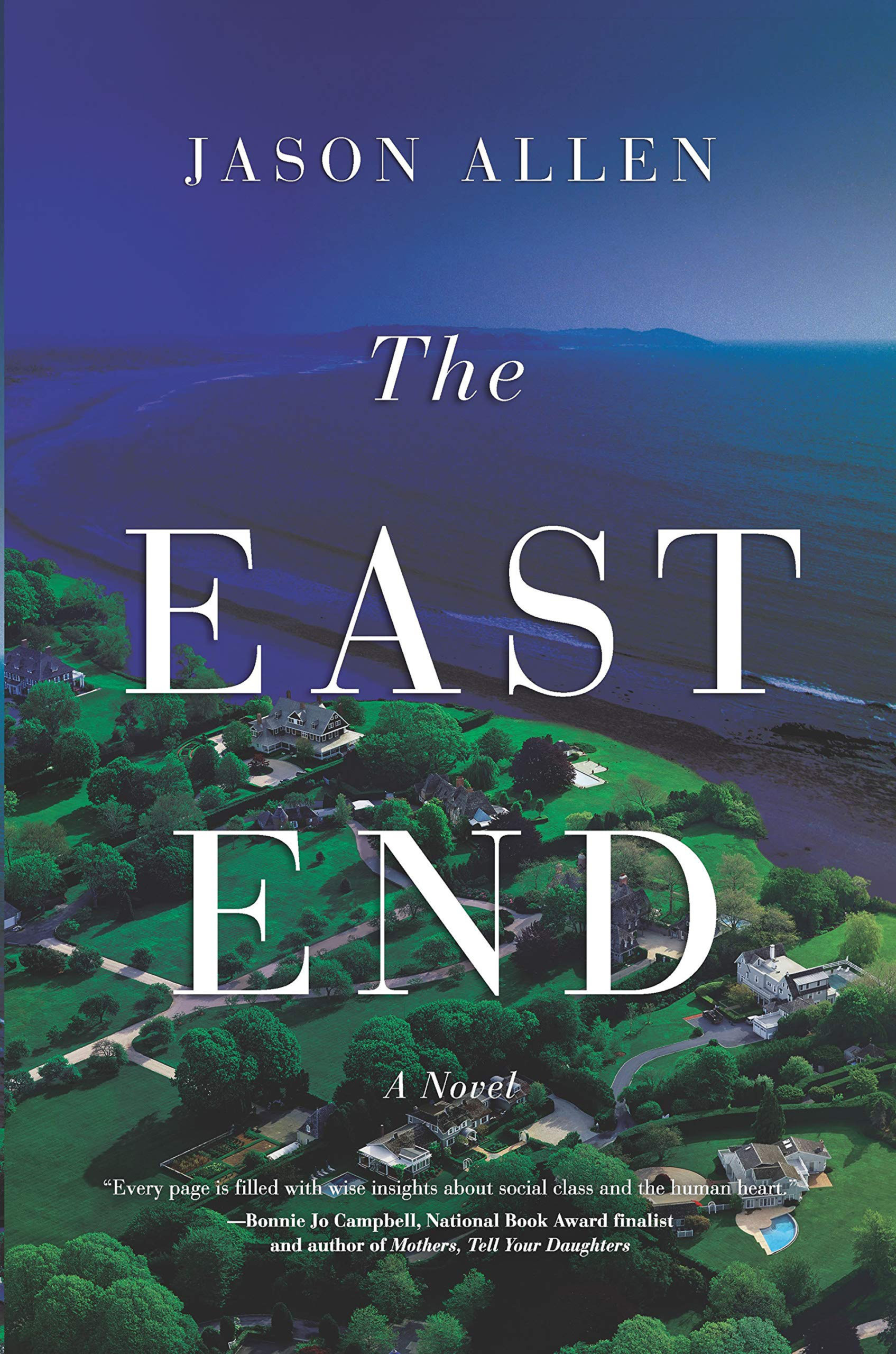‘The East End’ Gives Vent To Local Class Divide


For sure, Jason Allen’s debut novel “The East End” is not your typical beach read. It’s not about summer romance in the Hamptons or chic lit glam girls on the prowl, even though the plot spans a Memorial Day weekend. But it is indeed a Hamptons book in the sense that it features people who live and work here all year round, a demographic rarely featured in contemporary fiction about the East End.
And it gives vent to the class divide that separates rich from poor by way of a point of view sympathetic to the blue-collar service people dependent on the privileged McMansionites to whom they are invisible. “The East End” may be angrier than its author intends, but in this regard, it’s valuable.
Born in Vermont where he lived in a log cabin for the first year of his life, Allen grew up in a working-class home in the Hamptons like his young protagonist Corey Halpern. A back-jacket author photo shows an intense, somewhat amused bald-headed man with lots of arm tats. It’s obvious that Allen has overcome stereotype and disadvantage to earn a Ph.D. in literature and writing from Binghamton and become a published author of poetry and memoir and a teacher of writing, including in China and Atlanta, where he now resides.
The narrative opens with 19-year-old Corey on the night before the Memorial Day weekend. He’s sitting in a parked car in Southampton, killing time. Bored, resentful, he gets a kick out of breaking into rich people’s homes, not to steal but to look around and maybe mess around a bit, like putting salt in milk in the fridge. Corey’s not a bad guy. He cares about his younger brother and his mom, Gina, an alcoholic, pill-popping, abused wife of a violent loser, her second husband. She dotes on her boys, though, and works hard as a maid for wealthy estate owner Leo Sheffield.
Corey would love to escape his aimless, impoverished life but will not abandon his family. On this night his main house target is the Sheffields’ Gin Lane home. He, too, works there, and he’s developed a crush on Angelique, a friend of the spoiled Sheffield daughter, Tiffany. The romance might seem unlikely considering class differences, but Angelique lets on as to how she’s really working class and living at the Sheffield estate because Tiffany needed a friend.
The night takes a sudden turn: the Sheffield house, supposedly empty, isn’t. Leo, a closet homosexual, drove out earlier with his young lover, Henry, but when they both get so high on alcohol and coke they can hardly manage, Henry suffers an accident in the pool and dies (no spoiler alert). Also, Tiffany and Angelique unexpectedly show up in time for Angelique to see Leo hiding Henry’s body (Tiffany’s upstairs passed out). Corey, who’s been hiding out on the roof sees it all — accident and attempted cover up. Meanwhile, Mrs. Sheffield, a clichéd rich arrogant snob, who cares only for the Hamptons social scene, is on her way out with monied guests for the annual Memorial Day party. And Henry, who had recently attempted suicide, has been reported missing.
The narrative unfolds from various points of view — Leo’s, Corey’s, and Gina’s. Though each character is rounded out, none engage. Perhaps that’s because Allen’s prose succumbs at times to pedestrian description (“words remained trapped behind locked doors deep inside his head”; questions “kept on spiraling”) or self-conscious purple passage (“thoughts like screams,” “eyes puffy, pillow lines like pink lightning bolts imprinted along one of her cheeks”). The situations, however, do ring true, particularly an account (that goes on too long) of Gina’s attempts at AA.
Although PR material calls “The East End” a “twisty page turner and a nuanced morality tale,” morality is not clear because Corey and Angelique have few compunctions about blackmailing the put-upon Leo Sheffield, devastated by his lover’s death and a decent employer to Gina. Without heroism or mystery, the tale fizzles out against concluding fireworks and last-minute violence. Still, Allen successfully gives voice to the plight of the depressed working poor in an upscale community.
An acknowledgments page movingly dedicates the book “to the Hamptons kids from working-class families and broken homes, to those who survived and those who left us too soon” and to those who reminded the author that “we never need to walk alone.”



